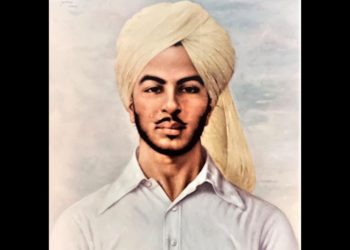Over four and half years after Muzaffarnagar witnessed one of the most horrific bouts of communal violence in India, senior leaders from Jat and Muslim communities in the area are trying to get the two communities to strike a peace deal.
A committee of twenty prominent, reputed and socially respectable members from Jat and Muslim communities has been formed for the purpose. The committee has the support of the Samajwadi Patry patriarch Mulayam Singh. The members of the committee which includes Ghulam Mohammad Jaula president of Bharatiya Kisan Mazdoor Manch, Naresh Tikait, leader of Bharatiya Kisan Union (BKU), are planning to visit all the riot affected villages and meet both the Muslim and Jats and convince them to compromise with each other.
“As part of the efforts to compromise and heal the wounds of the past, we have started 'conversation for compromise'” Ghulam Mohammad Jaula, president of the Bharatiya Kisan Mazdoor Manch, told NewsClick.
“We have constituted a team of twenty people which includes prominent and respected citizens of Muzaffarnagar and Shamli. We are trying to identify the worst affected villages and villagers who had filed case against each other are being convinced to withdraw their police complaints,” Jaula said.
Jaula himself was deeply affected by the riots. He was a very close to the legendary peasant leader and founder of BKU Mahendra Singh Tikait till the latter's death. But during the riots he broke apart from BKU alleging that the Jat farmer leaders took the side of violent rioters having been influenced by BJP. This lead to the collapse of farmer activism. Jaula formed Bharatiya Kisan Mazdoor Manch to continue working for the farmers in western UP. But he sees a viable possibility for the “wounds to heal and for the crack in Jat-Muslim relationship to be ironed out”.
It all started with a meeting with former Chief Minister of UP and Samajwadi Party patriarch Mulayam Singh Yadav at his residence in Delhi on December 26.
“Many of us including my friends and brothers from Jat community, met Mulayam Singh and asked him what he thought of the possibility to bring about peace in the region. He of course loved the idea and extended his full support for this,” Jaula added.
After the meeting with the SP founder, a meeting was held in Purbaliyan village, one of the worst affected village during the riots, which was attended by Bahujan Samaj Party (BSP) leader Qadir Rana, former MP Harendra Malik, BKU chief Naresh Tikait and some khap leaders who chalked out a strategy to approach both the accused and victims in the village and convince them for “compromise”.
Naresh Tikait told NewsClick there was a genuine intention behind efforts for peace in the region and the grounds were prepared for the communities to be united again. “People, be it Muslim or Jat, are fed up of hatred now. They had never seen hatred and never known enmity for each other because both lived in peace for centuries. So, for all valid reasons, people are missing the amicable and peaceful times of the past. That is why all of us thought that we should give these efforts a push that they deserve," he said.
“It might take some time but it will happen,” he replied when asked about the time frame for concrete and tangible results. “The members of the committee met some victims and accused in few villages. And they agreed in principle with the idea. More details need to be chalked out before both the parties sign a compromise formula,” he added.
Mohammad Hassan, a riot victim from Kutba village who lost a family member during the violence too was part of the meeting at Mulayam Singh's residence last month. “I attended the peace meetings which have been happening. Vipin Balian, who is a member of the committee, had invited me. I agree that there should be peace now. And I am ready for the compromise formula, if the committee comes up with it,” he told NewsClick.
Activists who have been working for the resettlement and rehabilitation of the riot victims, however, said the victims need a “semblance of justice” to settle down and think of compromise. “For the wounds to heal, it is mandatory that the victims get justice. Forgiveness comes only after justice is delivered. What kind of compromise will be arrived if victims feel that they did not get opportunity to get justice,” said Akram Akhtar Chaudhary, a local activist who has been working for the rights of the riot victims and their resettlement in Kandhla.
The riots were triggered due to an alleged eve teasing incident and subsequent murders of boys from both communities. They snowballed into competing mahapanchayats by both the groups, and widespread violence with over 42 people killed and more than forty thousand people losing their homes and forced to migrated from their ancestral villages to more secure areas.
The two communities used to be held together as part of Chaudhary Charan Singh's political legacy but broke apart after the riots with Jats siding with the BJP and Muslims scattered between RLD, BSP and Samajwadi Party.
Originally published by Newsclick





